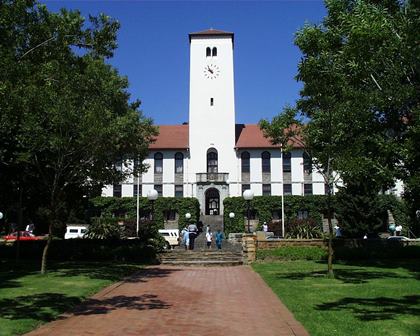Rhodes University based Institute for Water Research (IWR) has been named a partner in an international research consortium to address the global challenges of energy, water conservation, urbanisation and food security. The programme to strengthen the capacity of African research is backed by the Global Challenges Research Fund.
The project, ‘Unlocking resilient benefits from African water resources’ saw IWR named one of four Centres of Excellence. This means it will be supported to develop into an expert hub where veteran and new-generation problem solvers collaborate in world-class research across priority themes including energy, water conservation, urbanisation and food security.
The four joint research excellence projects will help build synergies between the African Research Universities Alliance (ARUA) and United Kingdom Research and Innovation (UKRI) in a three-year partnership developed through the Global Challenges Research Fund. It’s intended to build African-UK collaborations and strengthen African research capacity.
UKRI works in partnership with universities, research organisations, businesses, charities and governments to create the best possible environment for research and innovation.
ARUA is a network of universities from different countries and different historical backgrounds that aims to enhance research and graduate training in member universities.
IWR Director Professor Carolyn Palmer project said the Institute was thrilled to be part of the international research consortium.
“Water is fundamental to thriving human life and society, and people are inextricably part of the natural environment. But with growing demands on water across Africa, and increasing constraints on supply, there is an urgent need for new research, methodologies and practices to meet the Sustainable Development Goals (SDGs) and realise the Africa Water Vision 2025” Palmer said.
Researchers from South Africa, Ethiopia, Rwanda, Senegal, Tanzania, Uganda, Nigeria and Britain will collaborate on the project.
UKRI’s International Champion, Professor Andrew Thompson said, “To sustainably address global challenges, we need a genuine global response and that means forging stronger partnerships that are fair, equitable and fully reciprocal between researchers in the northern and southern hemispheres.
“This exciting programme with ARUA is supporting research that transcends national boundaries and will produce different ways of thinking about challenges and different solutions to tackling them.”
ARUA Secretary-General, Professor Ernest Aryeetey said: “I would love to see a world where discussions about global health are influenced by work done in Africa, where discussions about climate change are influenced by African researchers and where African governments and the international academic community listen to African researchers. ARUA’s partnership with UKRI is an important stepping stone to realising this vision.”
The 13 ARUA Centres of Excellence being supported through capacity-building grants are:
Climate Change – University of Cape Town, South Africa
Energy – Stellenbosch University, South Africa
Food Security – University of Pretoria, South Africa
Good Governance – Addis Ababa University, Ethiopia
Materials, Energy and Nanotechnology – University of Witwatersrand, South Africa Migration and Mobility, University of Witwatersrand, South Africa
Non-Communicable Diseases – University of Nairobi, Kenya
Notions of Identity – Makerere University, Uganda
Post-Conflict Society – Addis Ababa University, Ethiopia
Poverty and Inequality – Addis Ababa University, Ethiopia
Unemployment and Skills Development – University of Lagos, Nigeria
Urbanisation and Habitable Cities – University of Lagos, Nigeria
Water – Rhodes University, South Africa
- Read more about the IWR’s project, ‘Unlocking resilient benefits from African water resources’ HERE.


